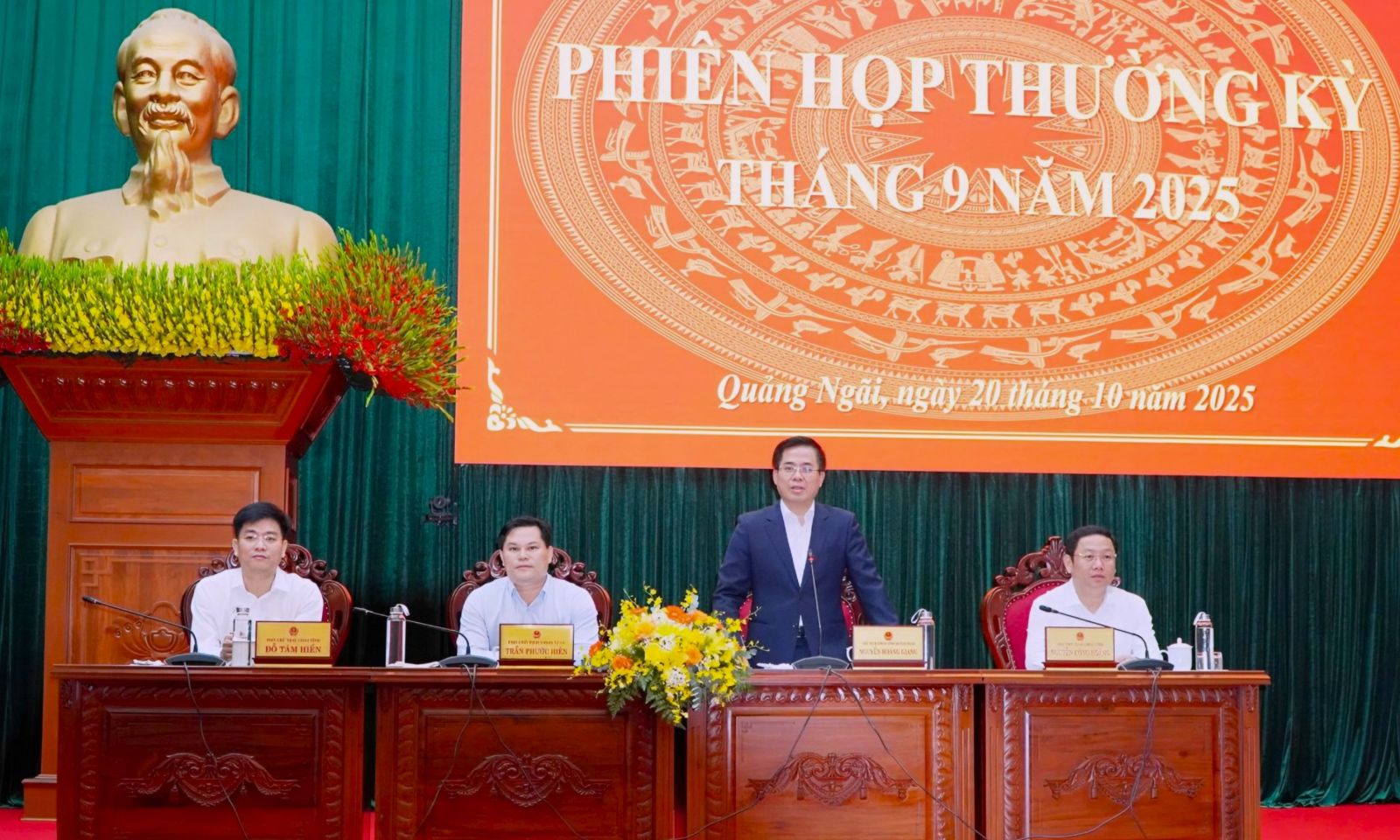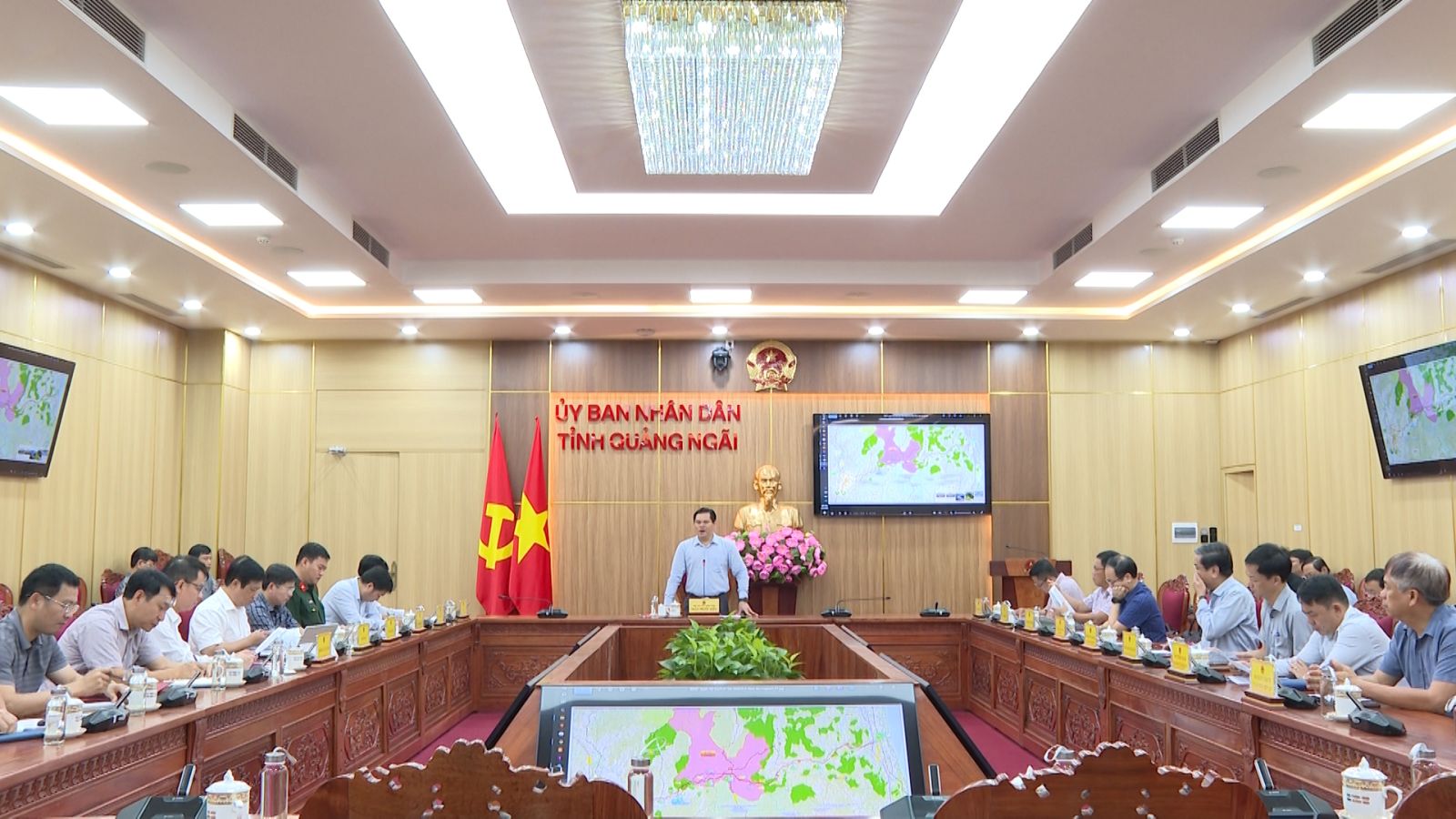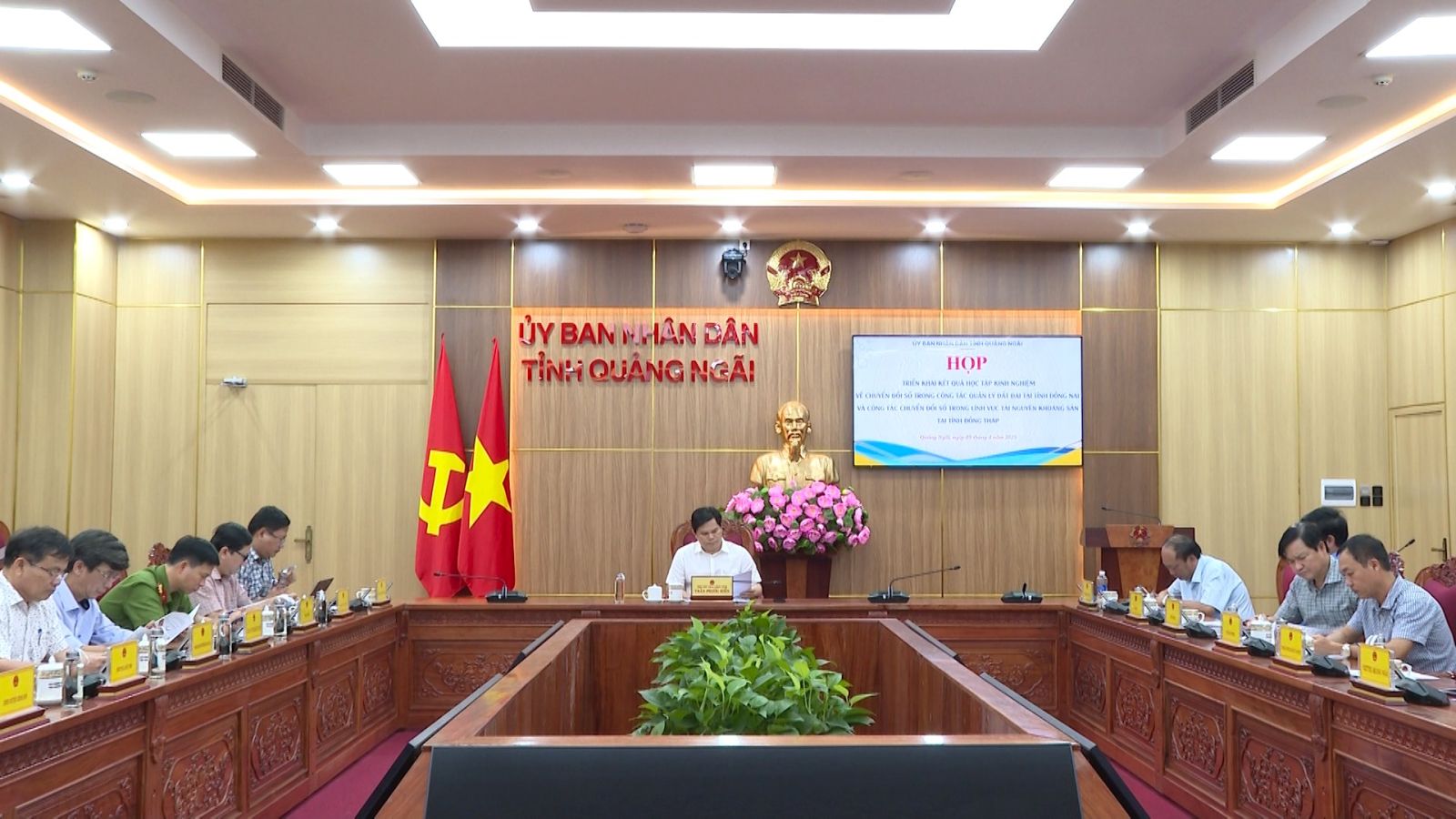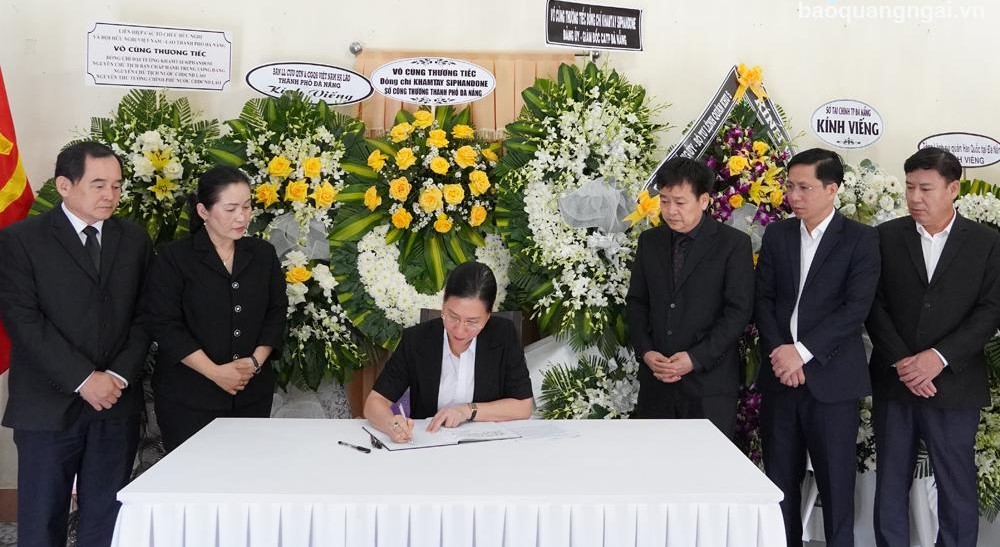
Chairman of the Provincial People's Committee, Nguyễn Hoàng Giang, and Vice Chairmen chair the meeting.
Significant socio-economic achievements
In the first nine months of 2025, the province’s socio-economic situation continued to show positive results.
The Gross Regional Domestic Product (GRDP) was estimated at VNĐ 65.4 trillion, up 10.15 per cent year-on-year — ranking first among six provinces and cities in the South Central and Central Highlands regions, and fifth among 34 provinces and cities nationwide.
The industrial sector maintained steady growth, remaining the key driver of the provincial economy.
The Industrial Production Index increased by 10.22 per cent compared to the same period last year, with all first-tier industries recording growth.
Other key indicators — including total retail sales, consumer service revenues, import turnover, transport and warehousing revenues, tourist arrivals, and tourism income — all recorded year-on-year increases.
Scene of the meeting at online connection points.
Agriculture, forestry, and fisheries production remained stable. Investment attraction, both domestic and foreign, showed positive signs, while budget revenue reached 66 per cent of the annual estimate, up 3.1 per cent compared to the same period last year.
In social and cultural sectors, the province ensured timely implementation of social welfare and security policies, alongside continued progress in labor, employment, health care, and education.
Administrative reform maintained high efficiency, with 98 per cent of administrative procedures processed on or ahead of schedule. National defense, security, and social order remained firmly safeguarded.
Notably, the restructuring of administrative units under the new two-tier local government model was implemented promptly and on schedule, contributing to building a lean, strong, efficient, and effective political and administrative system.
Discussion focuses on removing bottlenecks and local challenges
During the meeting, participants analyzed the province’s current situation and proposed practical solutions to ensure the successful completion of the 2025 socio-economic development goals in the final quarter of the year.
Representatives from communes, wards, and special administrative zones raised several key issues, requesting the Provincial People’s Committee to accelerate the completion of land database systems to facilitate the timely issuance of land use right certificates for local residents, support the development of medicinal plant cultivation and tourism in herbal-growing areas, and finalize mechanisms for managing transitional projects at the commune level under the new two-tier local government structure.
They also proposed expediting the allocation of funds to complete ongoing public investment projects and provide sufficient recurrent expenditure budgets to ensure the effective operation of commune-level administrative units.
Leaders of provincial departments and sectors were requested to directly address and clarify these issues, particularly those related to land management, finance, public investment, and decentralization.
Vice Chairman Nguyễn Công Hoàng called on localities to proactively prepare and adjust their planning schemes in line with local realities, effectively utilizing land resources and promoting urban construction and commercial housing development.
Vice Chairman Đỗ Tâm Hiển emphasized the need to strengthen state budget collection, accelerate the implementation of national target programs, and speed up the disbursement of allocated investment capital.
He also urged closer land management and digitalization of land data, contributing to more efficient use of land resources.
Moreover, he highlighted the importance of disaster prevention and the combating of illegal, unreported, and unregulated (IUU) fishing.
Striving to achieve and surpass the 2025 targets
.png)
In his concluding remarks, Chairman Nguyễn Hoàng Giang commended the efforts of all levels, sectors, and localities for their contributions over the past nine months, which helped the province achieve outstanding socio-economic results, including the highest growth rate in the South Central and Central Highlands regions.
However, he noted that several challenges and shortcomings remain, requiring timely and decisive action to meet the province’s annual development goals.
The Chairman urged all departments and localities to synchronously implement measures to accelerate economic growth in the remaining months of the year.
He called for the vigorous implementation of four key “pillar resolutions” and three resolutions of the Politburo related to national energy security, breakthroughs in education and training, and strengthening healthcare and public health.
He also instructed relevant agencies to closely follow the Provincial Party Standing Committee’s plan for implementing the conclusions made by General Secretary Tô Lâm during his recent working sessions with the former Kon Tum Provincial Party Committee and the former Quảng Ngãi Provincial Party Committee.
Chairman Giang stressed the need to address obstacles and create favorable conditions for local businesses to maintain and expand production.
He called for stronger efforts in budget revenue collection, preventing tax losses, and accelerating public investment disbursement for 2025.
He requested urgent completion of procedures for adjusting the Provincial Master Plan for 2021–2030, with a vision to 2050, and for the review and proper management of redundant or legally required public assets.
The Chairman also emphasized continuous monitoring of the two-tier local government model, the rational reorganization of internal units within departments and agencies, and enhanced technical guidance and supervision for communes, wards, and special administrative zones to ensure smooth, efficient governance.
He underscored the importance of discipline in administrative operations, timely handling of citizen and business procedures, and uninterrupted service delivery during the ongoing administrative streamlining process.
Chairman Giang further directed the continued focus on social welfare, job creation, and income improvement for residents, as well as effective disaster prevention and mitigation during the rainy and stormy months ahead.
Maintaining national defense, security, traffic safety, and social order were also reaffirmed as key priorities.
M.H



.jpg)
.jpg)
.jpg)




